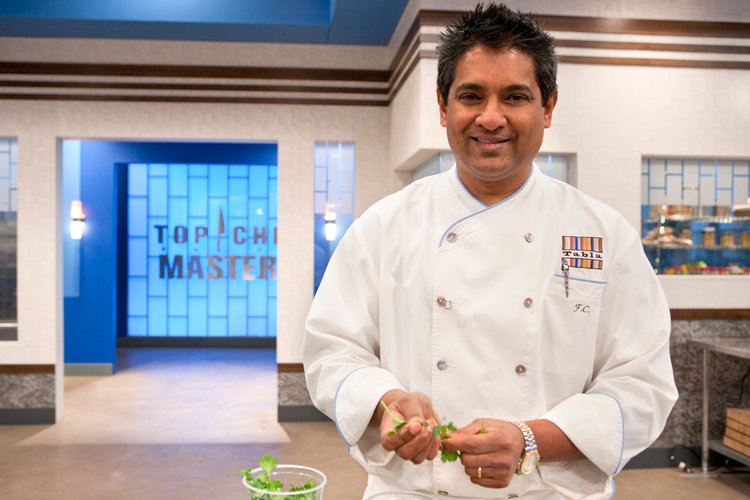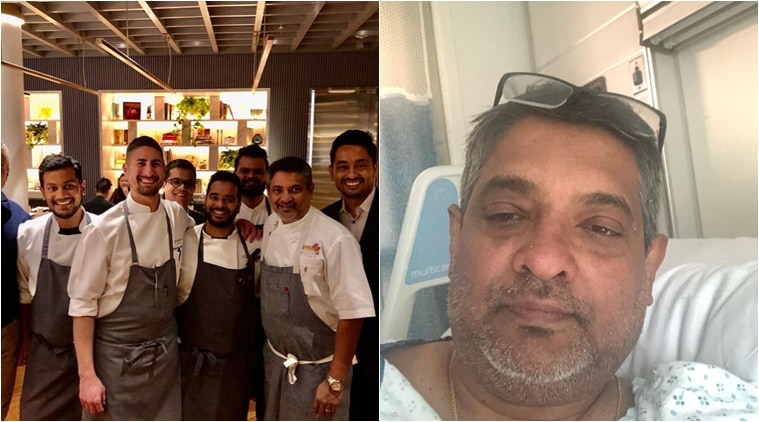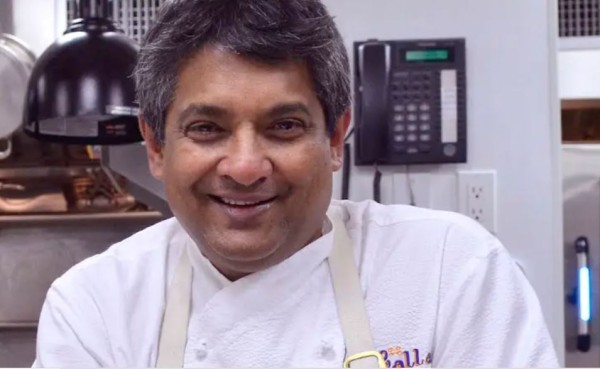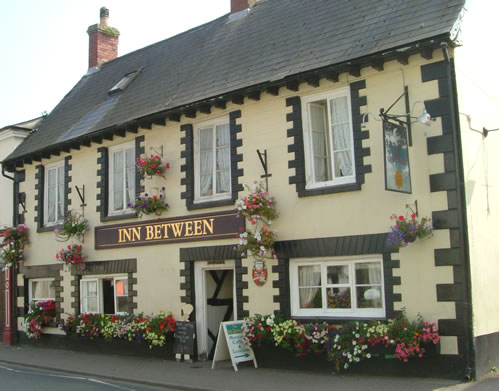

His eyes shone, and in them I saw something I didn’t realize I wanted from him all this time: validation. I called Floyd the godfather of modern Indian cuisine. The acceptance and legitimacy that we all craved and finally gained was because of him. I thanked this man I’d never met for changing my life and blazing a trail that I and so many other Indian chefs have followed. So my first words to Floyd were spoken through a microphone in front of 60 or so guests. He influenced me, pushed me, and taught me. That unbeknownst to him, he changed my trajectory. At that moment I realized how much I owed him. As we stood in front of everyone, soaking up the applause and adoration, my eyes wandered over to Floyd. As a chef I’m happiest when feeding someone, so as the dinner approached, I was as excited as a fanboy about to meet a comic book superhero.Īt the Beard House there’s a longstanding after-dinner tradition where the chefs leave the kitchen to talk to guests in the dining room. But the apprehension faded as I realized I didn’t need to prove anything anymore. I had built Floyd up into my personal Svengali, then into a larger-than-life hero. Vish was close friends with Floyd and asked if we could invite him to the Beard House dinner. I had seen him in passing at one Brown in the South dinner we hosted at the Saveur offices in New York and was planning another the next day at the James Beard House with my fellow Indian chefs Asha Gomez, Maneet Chauhan, Cheetie Kumar, and Vishwesh Bhatt.

New York Times critic Ruth Reichl gushed about this guy when he debuted Tabla.Ī snapshot of Brown in the South, with Meherwan Irani (far left) and Floyd Cardoz (middle) Photo by Thomas Payne Floyd was classically trained, worked at some of the most revered temples of New York gastronomy like Lespinasse, and gained acclaim and respect not just as an Indian chef but a real-deal chef on par with anyone else in the field. But here was a chef who just upended my own biases. The ones held up as the greats were almost always white and male.
#The inn between chef floyd nieblas tv
Up until that moment I never imagined that the seemingly rarefied culinary world-with its celebrity chefs, glossy magazines, TV shows, and black-tie award ceremonies-would ever take an Indian chef seriously. I read the five sentences or so Meyer devoted to describing Floyd, and my world suddenly tilted. “He’s an Indian chef in New York, and he opened an Indian restaurant with Danny Meyer called Tabla,” she continued.

One day as she was reading through it, she called me over excitedly and asked, “Have you heard of this guy?” She pointed to a name: Floyd Cardoz. Molly purchased every book about restaurant operations she could lay her hands on, including Danny Meyer’s now seminal book, Setting the Table. I imagined it would be a small, cozy chaat house serving chai, samosas, and the kind of street food I grew up with in India. We were tentatively calling it Chai Pani. I first heard about Floyd Cardoz in the summer of 2009, just as my wife, Molly, and I were opening our own restaurant in Asheville, North Carolina. Here chef Meherwan Irani, founder of Chai Pani Restaurant Group, shares Cardoz’s influence on him, how he changed his perception of what a chef could be, and inspired him to continue pushing the boundaries.

Chefs, restaurateurs, editors, writers, and restaurant critics took to social media to mourn his passing and remember his accomplishments as a groundbreaking chef and industry leader. On March 25, 2020, chef Floyd Cardoz passed away after testing positive for COVID-19.


 0 kommentar(er)
0 kommentar(er)
